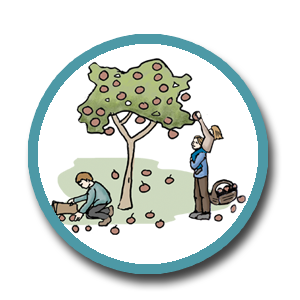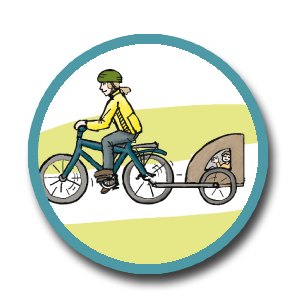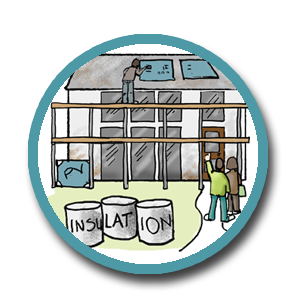 The Household Canny Programme is working with schools throughout Ward 7 to assist them to develop Canny School Action Plans.
The Household Canny Programme is working with schools throughout Ward 7 to assist them to develop Canny School Action Plans.
The Household Canny Challenge is a local project funded by the Scottish Government which aims to help you reduce household’s amd school’s energy and food bills and to make our streets and roads safer for playing, walking and cycling. We are working with schools and households in the East Linton and Dunbar District area.
The Household and Canny School programme assists the schools to attain and maintain their Green Flag and contribute towards delivering a number of the curriculum for excellence learning objectives such as Social Studies – learning about People, Place and Our Environment; Sciences – learning about Planet Earth; Literacy and English – learning about talking , understanding, analysing and evaluating; RME – learning about the Development of Beliefs and Values; Numeracy and Mathematics – learning about Information handling, data analysis, evaluating and interpreting data; Health and Wellbeing – learning about Social Wellbeing, Self Awareness and Interdependence.
All participating Schools have a Junior Climate Challenge Steering Group (JCCS).
The Dunbar and District Junior Climate Change Steering Groups are forming in each of the following local primary and secondary schools: Dunbar Primary School, East Linton Primary School, West Barns Primary School and Dunbar Grammar School.
The process of setting up each Junior Climate Change Steering Group is being agreed with each Head Teacher and the aim is to involve young people under the age of 18 to represent the views and ideas of their peers about local action on climate change.
The objectives for setting up each Junior Climate Change Steering Group are:
- To meet with Head Teachers and Pupil Councils and agree the process of recruiting young people;
- To try and encourage a wide cross section the age and gender and more than just usual young person who may already be involved in local groups;
- To recruit 6 young people in each school from P4-P7 and S1-S6
- To bring young people together in their schools to set their aims and objectives and develop action plans for reducing C02 emissions in their schools and localities;
- To enable the steering groups to identify ways to integrate learning about the need for and ways to reduce CO2 emissions as part of their curriculum for excellence such as: Social Studies – learning about People, Place and Our Environment; Sciences – learning about Planet Earth; Literacy and English – learning about talking , understanding, analysing and evaluating; RME – learning about the Development of Beliefs and Values; Numeracy and Mathematics – learning about Information handling, data analysis, evaluating and interpreting data; Health and Wellbeing – learning about Social Wellbeing, Self Awareness and Interdependence.
- To enable the steering group to contribute towards helping their school to attain a Green Flag
- To consult the steering group and seek their views and ideas regarding the local CCF funded projects regarding The Households Canny Challenge (Energy, Transport, Food) and the implementation of the Dunbar and District Local Resilience Action Plan.
- To facilitate the steering group to communicate with their Pupil Councils, Parent Councils and Local Community Councils.
All the above will be facilitated by a CCF Project Coordinator (Susan Guy who has worked with all these schools and built positive relationships with Head Teachers over the past 5 years)
For more information about our Canny School Programme please contact Susan Guy sue@sustainingdunbar.org or call 01368 866 920



